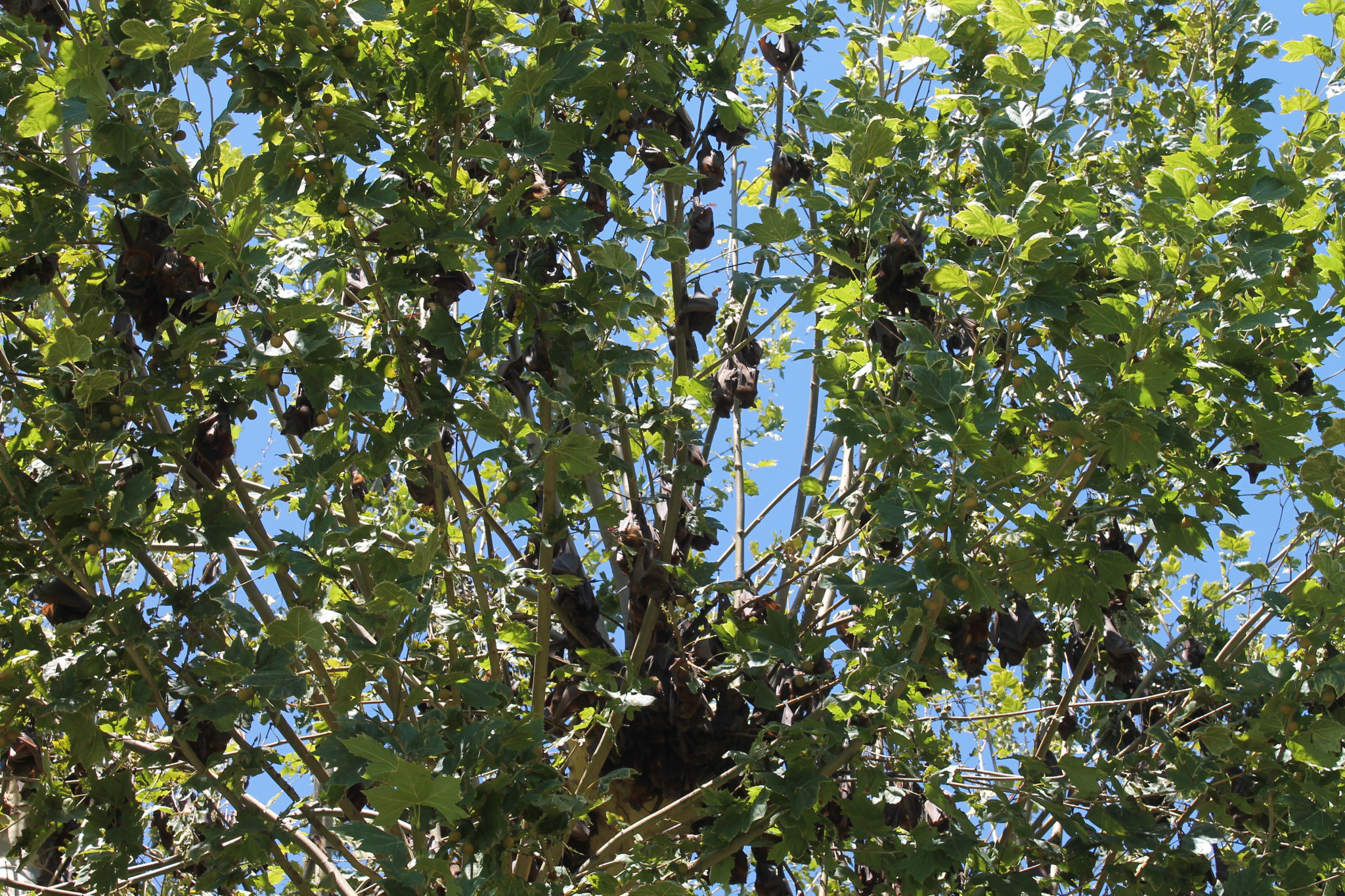General News
9 February, 2024
Flying foxes invade
‘Fruit bats’ have taken residence in the pool's trees - again!

Once again, the Gilgandra pool and Hunter Park have become home to a camp of Little Red Flying Foxes. The ‘fruit bats’ have taken residence in the branches of nearby sweetgum trees, easily identifiable by their round and spiky seed pods.
There have been calls to remove the visitors however, like other native bats, the Little Red Flying Fox is a protected species. Dispersing the foxes from their chosen roost is a lengthy process.
The encampment at the pool has forced the Gilgandra Swimming Club to cancel their upcoming carnival, which last year attracted over 110 entrants with over 70 from clubs outside the local district. Organisers are discussing whether to hold next season’s carnival earlier in the swimming calendar to avoid the unwanted visitors.
Council must comply with a flying fox management code of practice. This involves the development and submission of a management plan for the camp this year and those in future. Council’s plan is currently with Office of Environment and Heritage, for feedback.
Flying foxes do carry some diseases, but the risk to human health is minimal. Native bats are known to carry lyssavirus, as well as hendra virus and menangle virus. Cases of these diseases in humans are rare and only spread through scratches and bites from carrier bats. It is safest to avoid and not handle them directly.
“While human infections with these viruses are very rare it is a risk council still needs to manage,” said Gilgandra Shire Council’s general manager David Neeves.
He said that council is committed to the safety of our community as the process is managed. Council has placed a temporary fence around the affected trees on the highway side of the pool, excluding patrons from this area.
“We understand this is not an ideal solution as this is a popular area for patrons to seek shade in the pool grounds however, is a temporary measure while the flying foxes are in high numbers. We would like to reassure everyone that the fences are installed with patron’s health and safety in mind and that the presence of flying foxes does not compromise the water quality at the pool,” said Mr Neeves.
If you find an injured flying fox, call WIRES for assistance and relocation. If you find a dead one in a public space, call council and they will remove it.


